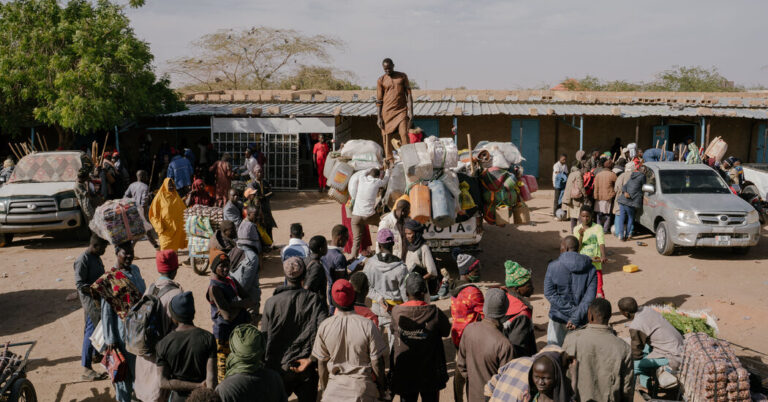If not left to die of dehydration or illness, migrants on the dangerous land routes through northern Africa toward the Mediterranean and Europe risk rape, torture, sex trafficking and even organ theft, according to a new report produced in part by the United Nations.
Migrant deaths on the Mediterranean have drawn global attention over the past decade, but “the number of those who die in the desert may well be at least double” those, said the report released Friday by two United Nations agencies and the Mixed Migration Centre, a non-governmental research group based in Denmark.
Based on interviews with more than 31,000 migrants all along their routes, from 2020 to 2023, the report documents the brutality suffered by the growing number of people from dozens of countries who try to make their way across the Sahel and the Sahara, fleeing war, environmental degradation and poverty.
Physical violence apart from sexual violence, which the report counted separately, was the risk most often identified by migrants. Dangers along the routes include arbitrary detention — often to extort money from their families — and trafficking for labor, sex or criminal activity. The migrants told of torture and even organ harvesting.
The violence often came at the hands of organized criminal gangs and militias, and in particular from the traffickers paid to shepherd people to Europe. Traffickers routinely lie to migrants about the perils they will face, demand more money from them once they are far from home, and provide little in the way of food, water and other provisions along the way.
“I believed all the accidents happen at sea,” Teklebrhan Tefamariam Tekle, an Eritrean refugee now in Sweden, told an interviewer. “The accidents are back there in the Sahara. It is full of Eritrean bodies. There you will find bones and skulls of dead people.”
Others told of migrants and traffickers simply abandoning those who collapsed of thirst or injury along the route. “You just keep going,” said one man, identified as Abraham. “You never look back.”
About one-third of the adults interviewed are women, who face particular dangers. An estimated 90 percent of women and girls traveling along the Mediterranean route were raped, according to one 2020 U.N. study, and some have been forced into sex work to pay for their journey. There are reports of women forced to marry kidnappers and birth their children and others of women having to pay sexual favors for the safe passage of a group.
“The stories are truly horrific,” said Judith Sunderland, who was not involved in producing the report, but as the associate director for Human Rights Watch’s Europe and Central Asia division has interviewed hundreds of people who survived the journey to Europe. The accounts in the report, she said, sounded tragically similar to those she heard.
“You just can’t believe people could be so cruel to each other,” she added. “You can’t fathom how people still take these journeys, many of them knowing the risks.”
Migrants identified Libya, Algeria and Ethiopia as the most dangerous countries.
Over 72,400 migrants have sailed across the Mediterranean in 2024 alone, according the U.N. Refugee Agency, one of the sponsors of the new report, and at least 785 are known to be dead or missing. But as hard as it is to keep track of sea crossings, it is harder still, the report’s authors said, to estimate the numbers of people trying to reach Africa’s north shores after crossing remote, thinly populated and often lawless stretches of desert — and how many vanish along the way.
Between January 2020 and May 2024, 1,180 people are known to have died crossing the Sahara, but the true number is likely much higher, the report said.
European countries, to varying degrees, have long tried to dissuade migrants, and have paid nations in North Africa to prevent people from making the sea crossing. A recent investigation by a consortium of news outlets found that in some cases, European governments are paying to train and equip North African security forces that force migrants away from the coast and back into the desert without supplies, putting their lives at risk.
Several of the countries that migrants try to cross are torn by armed conflict and extreme poverty, or have weak central governments.
The combination of instability and hostility means that migrants in Africa have little chance of finding any recourse from the authorities, or treatment for physical or emotional trauma, said the report, which was also sponsored by the U.N.’s International Organization of Migration.
The report, updating and expanding on one released in 2020, said that since then, “the security situation has further deteriorated in several countries, generating increased displacement and cross-border movements of persons in need of international protection and of migrants.”



